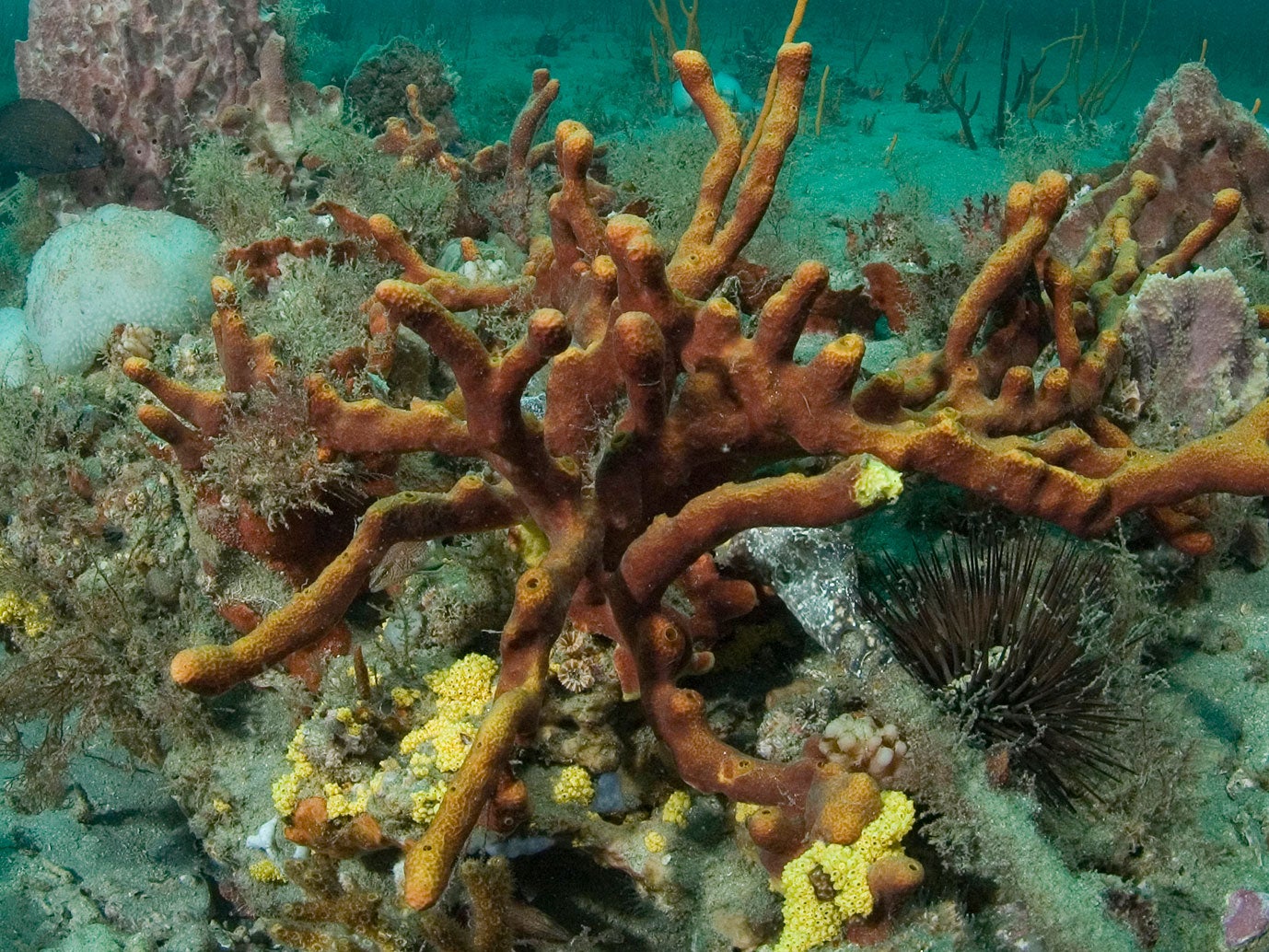Sea sponges were the first animals on Earth, scientists discover
Sea sponges are believed to have first appeared 640 million years ago

The first animal to appear on Earth was probably the humble sea sponge, American scientists believe.
According to researchers at the world-famous Massachusetts Institute of Technology (MIT), sea sponges pre-date the Cambrian explosion, an evolutionary period that began around 540 million years ago, during which a large number of new animals appeared.
The MIT team made the discovery by analysing molecular fossils - trace amounts of molecules found in ancient rocks that survive to this day.
One rare molecule in particular, 24-Isopropylcholesterol, or 24-IPC, has been found in rocks that are 640 million years old. It's also known to be produced by sea sponges today.
In an effort to follow up this lead, the team, led by David Gold, tried to find out which gene was responsible for producing 24-IPC, what organisms carry the gene, and when it had evolved in those organisms.
By analysing the genes of around 30 different organisms, the team narrowed it down to a single gene, known as sterol methyltransferase (SMT), which can cause an organism to produce 24-IPC if it contains the correct number of copies.
The researchers found that both sea sponge and algae species have the right number of copies of SMT to produce 24-IPC, and by analysing these genes and producing evolutionary trees based on the fossil record, they found that sea sponges were producing the molecule long before algae.
The scientists believe they reached this milestone around 640 million years ago - the same period in which the rocks containing 24-IPC were formed.
This study provides strong evidence that sea sponges appeared on the Earth much earlier than any other animals.
However, David Gold believes the discovery brings up new questions.
"What did these organisms look like? What was the environment like [640 million years ago]? And why is there this big gap in the fossil record?" he said.
“This goes to show how much we still don’t know about early animal life, how many discoveries there are left, and how useful, when done properly, these molecular fossils can be to help fill in those gaps.”
Join our commenting forum
Join thought-provoking conversations, follow other Independent readers and see their replies
Comments
Bookmark popover
Removed from bookmarks